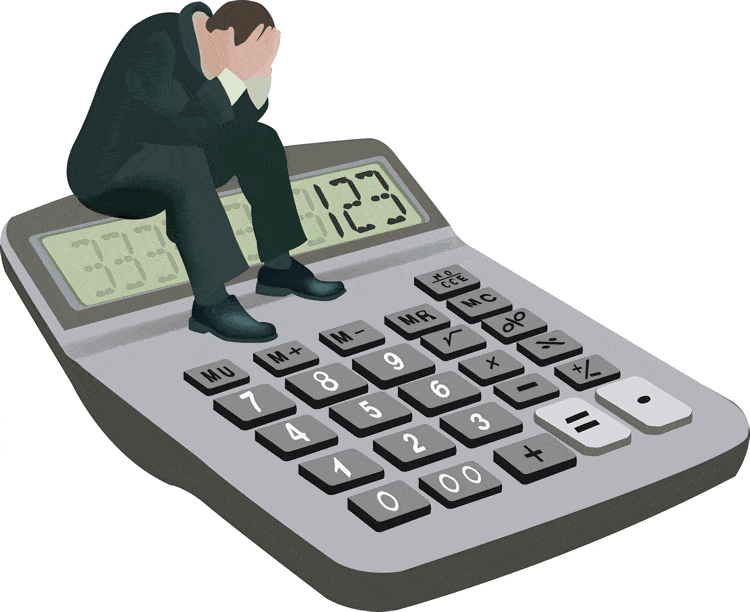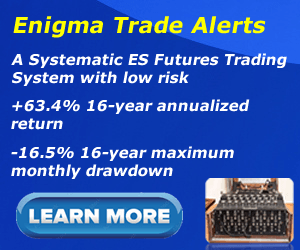If you haven't learned how to accept a loss in trading, perhaps you shouldn't be trading at all. Losing trades are all part of the process and should a component of every trader's mental awareness. What is just as important, or more important, is recognizing this known fact and how to accept a losing trade. You must move forward with your trade plan.
First, recognize that everyone loses at some point. Our scenarios don't play out as expected. Our underlying gaps lower and our loss is bigger than we intended. We must realize that we're all going to lose at some time or another. The loss may be either through our mistakes (since we are human, after all) or natural market forces. It's incumbent upon us to decide when we can trust ourselves and when we can't. We can usually trust ourselves to exit a trade when needed, but what happens when we're trading a strategy in a size that makes us nervous. A nervous trader isn't one who will calmly pull the plug on a trade when confronted with a sudden move against the trade. If that's the case, it's time to cut down the size of that trade.
Then there's the trader who couldn't trust his/her actions because the previous two trades were losers. Now this trader may be in an “I have to win this time” trade. This can be called a “revenge” trade, to make up those losses. This can create a dangerous scenario. A trader trying to recover a loss with a revenge trade may be putting him/herself at risk by not following the plan to exit at the correct time.
The most positive attitude imaginable coupled with the best analytical skills can't prevent a trader from experiencing a losing trade. The markets are just too erratic, and there are too many variables to consider for any trader to be right every time. Losing is part of the business if losses are managed accordingly to your trade plan. What is not acceptable to a successful trader is the loss of confidence in yourself, which could lead to exposing your trading capital to unnecessary risk.
How can the novice trader limit risk?
Stop limit orders are one strategy a trader can employ to limit risk. Of course, it's important to use stops appropriately. If the trader's concerns center around the unfamiliarity of the underlying or strategy, or the volatility of the underlying at the moment, there may be concern that a stop loss order will result in a bigger-than-anticipated loss if the underlying's move is an adverse one. Still, setting stops are a great idea . . . for traders who can trust themselves not to move the stops.
The previous sentence's closing is key. You must trust yourself not to move stops. It is very easy for stop limit orders to be changed, based on the trader's opinion at any given moment. For instance, one morning a trader wakes to find bad news on the underlying or the industry to which it belongs. For example, if there was really bad news on AAPL, it may affect NDX or SPX. Anticipating that there might be a knee-jerk drop in the stock price at the open, that trader might be tempted to cancel the stop order until he or she can determine whether the early drop will be reversed. Sometimes the reversal happens, but sometimes it does not. If you're the type of trader who waits for the market to settle, you probably should not be using stops to limit risk.
Here's another example of trusting your plan and your stop. There's the trader who has just heard that there might be some layoffs at his/her work place. This fear makes the trader extra wary of having a losing trade. Seeing a move mid-morning one day, with the underlying's price dropping toward a previously set stop, the trader might be tempted to rethink that stop, and either move or remove it altogether. And then the stock price plummets below the original stop price, resulting in an even greater loss than the trader originally planned.
This article does not contain any secret techniques. As was mentioned previously, we have ALL been there sometime during our trading careers if we've traded long enough. This article is meant to warn you to recognize those times when you can and can't trust yourself to set and adhere to stops, or to take other steps to control risk. If you can't trust yourself, you should give serious consideration to constructing the trade so that the risk control is built in by using hedges.
If you have had a loss, and are not feeling quite ready to enter the market right away, there is nothing wrong with staying in cash. Cash is a position. Sitting on the sidelines and waiting until you are more comfortable and mentally prepared to accept the risk in a new trade can be a prudent course of action. When your fear has diminished, you will be more at ease which can allow you to become a more consistently profitable trader.
How have you learned to accept your losses? Feel free to comment.



Thanks for the article Joanna. This is an especially timely article given the big market moves we’re seeing. While we all will have losses, the key is to keep them small so you can be in business tomorrow.
Spy on me at http://read.tn9.eu/